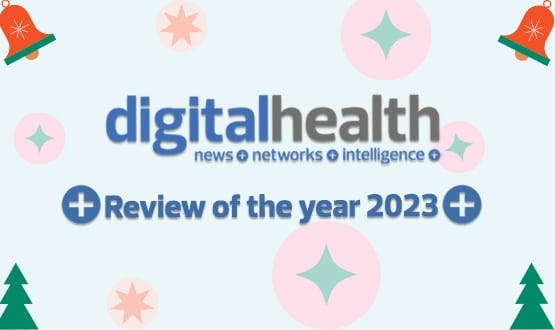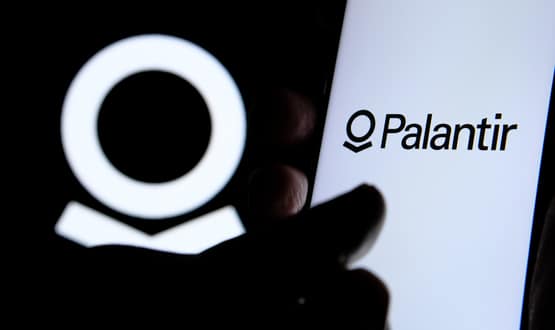Industry news in brief
- 17 April 2020

This month’s industry round-up features news that Oxford VR has launched a social engagement programme aimed at reducing anxious social avoidance, and Olympus has signed a three-year partnership with Macmillan Cancer Support to provide GPs with diagnostic tools.
Oxford VR launches social engagement to reduce social avoidance using virtual reality
Oxford VR (OVR) has launched OVR social engagement, a ground-breaking and progressive mental health intervention using virtual reality technology to help individuals overcome anxious social avoidance.
Social avoidance is prevalent in multiple mental health conditions including agoraphobia, panic disorder, social anxiety, depression, personality disorders, and schizophrenia.
Oxford VR creates automated immersive psychological therapy interventions that build on 20 years of clinical research by Daniel Freeman, Professor of Clinical Psychology at the Department of Psychiatry, Oxford University.
Developed by clinicians, OVR social engagement is a user-centred program that translates evidence-based cognitive-behavioural therapy (CBT) through immersive virtual reality environments.
It is delivered over half-hour weekly sessions. During a session, the user puts on a VR headset and enters a virtual world where they are guided by a virtual coach and required to complete a series of graded tasks, in different situations such as a street scene, a bus, and a shop – reflecting the everyday triggers of anxious social avoidance.
Throughout the program the user gradually faces problematic situations to overcome their extreme distress and fear, to feel safer, more confident and more in control. It’s designed to give people reassurance they can try out new things safely.
UK Children’s Hospice staff showcase leading assistive tech
UK charity Lifelites showcased the latest in assistive technology at its Children’s Hospice Staff Conference in Birmingham in March.
The technology is donated to life-limited and disabled children using every children’s hospice service across Britain.
The assistive technology that Lifelites presented at the conference included Eyegaze, an eye tracking technology that enables disabled children to paint pictures, play games, write and communicate just by using their eyes.
Other technology included the Mobile Magic Carpet, which projects interactive games and moving images onto the floor, wall, ceiling, and other surfaces.
The Mobile Magic Carpet gives children in wheelchairs a chance to kick piles of virtual leaves, play football with their brothers and sisters using a ball made of light, and paddle in a virtual fish pond.
It includes 500 apps where life-limited and disabled children can bring the outside world in, to their hospice rooms, on their tray table, and even onto their bed.
Simone Enefer-Doy, chief executive of Lifelites, said: “The wide range of equipment is specially adapted so that it can be used by anyone, regardless of their ability. Every moment is precious for these children and their families, and this technology gives them the opportunity they deserve to make the most of their time together.”
Sanofi partners with Babylon to provide IBS support
Pharma company Sanofi has joined forces with Babylon for a three month pilot across the digital health providers services, offering patients with digestive problems quick advice through their smartphones.
The pilot allows patients to access video consultations with a doctor and to check symptoms through babylon’s AI-enabled chatbot.
Only an estimated 30% of people in the UK who suffer from irritable bowel syndrome have actually been diagnosed.
A lack of health advice often means sufferers do not partake in any treatment at all to alleviate their uncomfortable symptoms, hence there is unmet need to improve healthcare access and provide more information within this sector.
Babylon’s AI Health Service enables consumers to sign up, input their health query and have a conversation with the AI Health Assistant, which provides them with triage and treatment advice.
Olympus and Macmillan Cancer Support announce landmark three-year partnership
Olympus and Macmillan Cancer Support have announced a landmark three-year partnership to support the work of Macmillan GPs and boost the programme of cancer care education they deliver for healthcare professionals across the UK.
Macmillan GPs are part of a network of over 200 UK GPs who work together to educate and influence local GPs and healthcare providers to deliver high quality, personalised support to everyone affected by cancer, whether they have just been diagnosed, are living with the disease or require end of life care.
Olympus’ products enable healthcare professionals to ‘peer’ inside the body during endoscopic procedures which allows them to see more and do more.
By focusing on the early detection and minimally invasive treatment of a broad range of diseases, their mutual mission is to improve patient outcomes, minimise discomfort and accelerate the recovery process.
Alex Howe, regional fundraising manager for Macmillan in Essex, said: “Olympus‘ donation will make a significant difference to support our work to improve the quality of cancer care.
“Cancer diagnoses are continuing to climb across the UK, with another person receiving the life-changing news every 90 seconds. By using their expertise to influence the direction and quality of local cancer services, as well as upskilling the primary care workforce, Macmillan GPs can play a critical role in improving people’s care.”
IBM Watson Health and EBSCO Information Services launch integrated clinical decision support solution
IBM Watson Health and EBSCO Information Services have launched strategic partnership aimed towards enhancing clinical decision support and operations for healthcare providers and health systems.
The companies are combining their respective platforms – DynaMed and IBM Micromedex – into a single, high-value solution called DynaMed and Micromedex with Watson.
The combined solution is designed to bring together drug and disease content, into a single search for evidence-based insights to help inform clinical decisions.
It will provide peer-reviewed clinical content including systematic literature reviews in 28 specialties for comprehensive disease topics, health conditions, and abnormal findings to highly focused topics on evaluation, differential diagnosis, and management.
The content undergoes a rigorous, seven-step process, giving clinicians access to current, evidence-based diagnostic and therapeutic recommendations.




